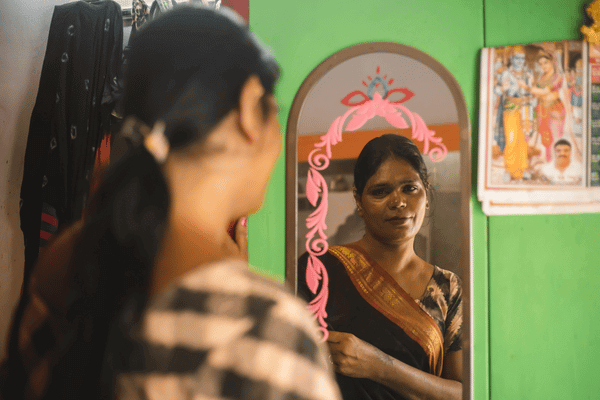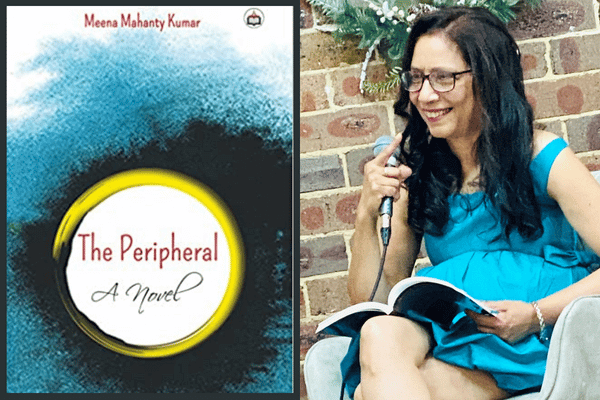A young lawyer in Sydney discovers a mysterious clue in her father’s old papers. This tantalizing discovery rekindles memories long buried, and takes the protagonist to a journey through the land of their birth, India. The Peripheral by Meena Mahanty Kumar threads its way through cultures, nations, and time.
Readers who share the immigrant journey to Australia will find several tugs of nostalgia. The author moved to Australia in 1999, and has now lived half her life in this country. She has drawn on her personal experience to make the Australian and Indian cultures and practices come to life for the reader.
Yet, in The Peripheral, Meena Mahanty Kumar does not merely share a walk through two cultures alone. It raises crucial questions about identity and belonging, and significantly, about otherness. It does this in two ways: in a lighthearted manner, through everyday ordinary things and experiences; and then, quite dramatically, by bringing us up close with the lives of kinnars (transgenders, previously known as hijras), who live on the periphery of mainstream Indian life.
The final result is a sensitive portrayal of difference – and its consequent human anguish.

Some of the scenes in the transgender ghettos are striking – tense and confronting. Kumar does not shy away from representing the reality of existence for kinnars.
In doing so, she brings to the surface quite effectively, the basic human desire to fit in, be accepted, and have meaningful and rewarding social connections. To not feel membership, can be crushing at many different levels.
Overall, though, the book is an easy read and will appeal to a wide range of people from young to adult readers. Migrants will see a reflection of their lives and experiences in those of the protagonist, Rene. Be prepared for a bewildering array of India through a Sydneysider’s lens.
I found the personal touches delightful as well as provocative. I loved the references to familiar food outlets in Delhi; I also had to stop reading several times to allow the rush of emotions to subside.
To me the narrative felt like an extensive thali (assorted food platter) rather than a single course meal. You’ll find a range of images, individuals, emotions. Some you will enjoy and wish there was more, some may just taste before moving on.
The book retains enough optimism to help the reader through the narrative. The author appears to seek refuge in the artists’ freedom to create perfection, rather than leave the reader with the dull taste of reality alone.
With Sydney currently hosting WorldPride 2023, the book could not have come at a better time: experiences of the kinnar community in India shed a light on the challenges of not fitting in with the social norms, anywhere in the world.
At some time or the other, we have all been peripherals.
Read More: Desi Girl by Sarah Malik





